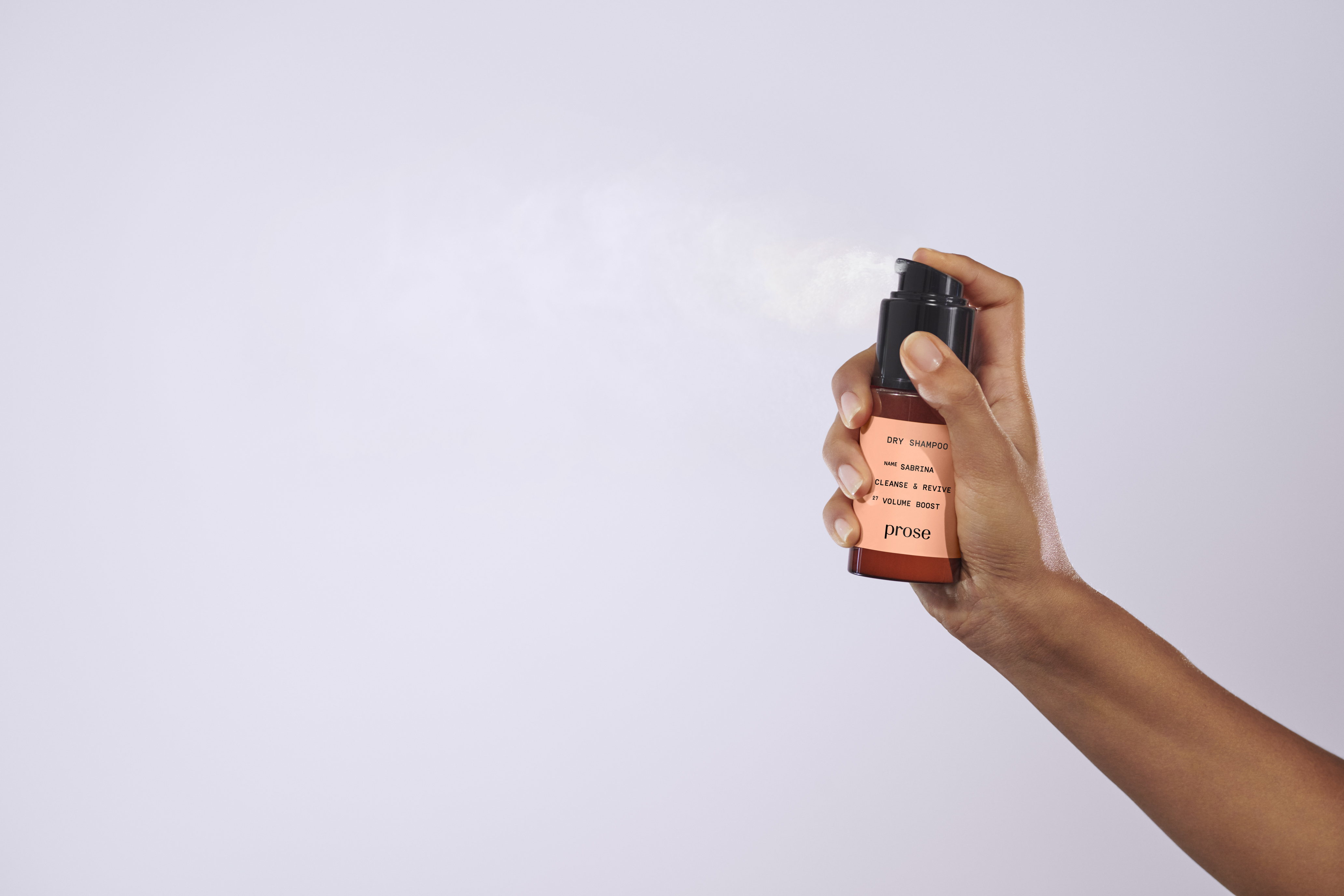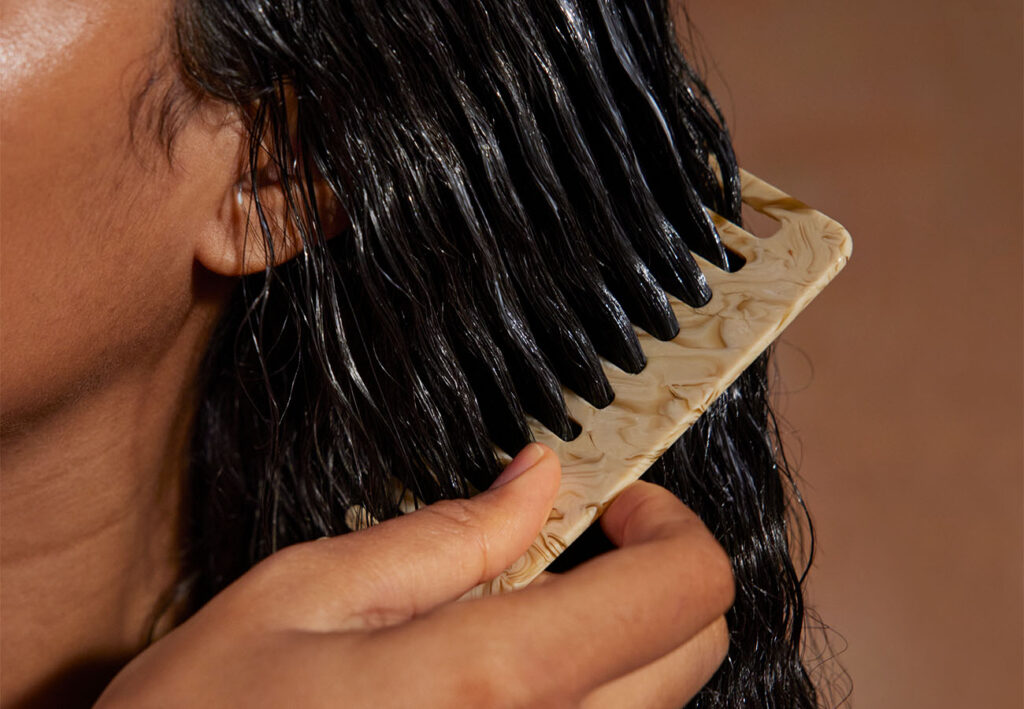We’ve all been in a rush in the morning and somehow didn’t make the time to wash our hair. On days like these, dry shampoo can be a lifesaver. But have you ever wondered what dry shampoo is and how it works? How does it magically solve your dirty hair days? Well, don’t worry, we’ve got you covered.
The History of Dry Shampoo
The concept of dry shampoo has actually been around for centuries. There is some evidence that people in Asia were using clay in their hair ages ago. During the Elizabethan era, people did not bathe very often and therefore needed powders to reduce the appearance of dirt and oil in their hair. The modern-day kind of dry shampoo has been around since the 1940s.
What Is Dry Shampoo?
First things first, what is dry shampoo made of? Well, it’s essentially a powder or a fast-drying spray that provides a waterless option for keeping hair looking clean. Some dry shampoos come in pastes or in different shades to match your hair color. Dry shampoo is often made of corn starch or rice starch. It can come in an aerosol or other type of spray bottle for easy application.
How It Works
Dry shampoo works because the porous ingredients soak up the oil on your scalp to make it appear less greasy. This can freshen up your look if you skipped a wash or just hit the gym.
Your scalp is covered with hair follicles that produce sebum, which can help soften your hair. But this sebum can also collect in your hair and create buildup, which is what gives our roots that oily look. A lot of dry shampoos have a fragrance as well, which can make your hair smell nice between washes.
Effectiveness?
The effectiveness of dry shampoo depends on your hair texture and how you use it. Although the name suggests it is “shampoo,” dry shampoo does not actually clean your hair. It can help disguise the oils and dirt in your hair, but it will not get rid of them.
So you can’t use dry shampoo as a replacement for washing your hair. That being said, washing your hair every day is not good for your hair, so dry shampoo can be very helpful with extending the length between washes if your hair is on the more oily side.
How To Use
The way that you use dry shampoo may also depend on your hair’s length, texture, and oiliness. First, you’ll want to start with removing any hair accessories such as hair ties, bobby pins, or clips. Hold the dry shampoo six inches away from the crown of your hair and spray a very small amount onto your roots, where necessary. Don’t forget to get the underside of your hair as well.
Next, use your hands to gently massage the product into your scalp like you would with regular shampoo. This is optional, but you can use a blow dryer after the application of dry shampoo for added volume.
Downsides?
This all sounds great. Too good to be true? Are there any negative aspects of dry shampoo? Well, not really. As with anything, you should use dry shampoo in moderation. Try and limit your usage to about once or twice a week.
If you do overuse the wrong type of dry shampoo, it can start to irritate your scalp and dry it out. It can also clog your pores on your scalp, which could cause more problems. Overusing dry shampoo can dry your hair out and make it more susceptible to damage and breakage. After you use dry shampoo, the next time you shower, make sure to use a deep conditioner to restore moisture in your hair.
How Often Should You Wash Your Hair?
There are very few people who need to wash their hair every day. This group includes people with very fine hair, people who exercise frequently and sweat quite a bit, and people who live in very humid climates.
Otherwise, you should wash your hair every 2-3 days, depending on your hair type. Every scalp is unique, and so you should try and find a washing routine that works best for your hair. You want to find a balance between overwashing and under washing. Don’t rely on dry shampoo too much.
How Does Regular Shampoo Work?
So now that you know what dry shampoo is, you might be wondering how regular shampoo works. Shampoo works by trapping the excess oil, residue, and dirt in your hair, which you then rinse out.
Shampoo is an emulsifier and can help keep your hair pH balanced. Shampoos contain detergent, just like dish soap or laundry soap, albeit on a much more gentle scale. A detergent works as a surfactant.
This means that it can lower the surface tension of water, making it less likely to stick to itself and more able to bind with oils and soiling particles.
According to ThoughtCo, some of the molecules that make up shampoo are able to bind to your excess sebum or any styling products that may be left in your hair, so that when you rinse out the shampoo, these particles go with it.
Another noticeable trait of shampoo is its lathering effect. Although this is very common, the lathering does not actually contribute anything to the cleaning power of the shampoo you use. Fun fact: lathering was originally added to shampoo because people liked it, not because it improved shampoo’s usage.
Bottom Line
Here are some of the most important things to remember when using dry shampoo:
- Don’t spray in one spot for too long; use a sweeping motion for even coverage.
- Don’t use it every day. This will lead to buildup on your scalp and clog your hair follicles.
- Try using dry shampoo at nighttime before bed for a refreshed look in the morning.
- If the dry shampoo says to shake before use (most do), make sure you do to ensure that you are distributing it evenly.
- Do not spray the dry shampoo too closely to your head. Applying directly to your roots can make your hair look chalky and will be harder to wash out.
- Only apply in the areas of your hair where it is absolutely necessary. Applying too much can make your hair feel stiff.
- Don’t use too much product; this could make your hair gritty and extremely dry. Use a small amount and massage at the root. Then wait and see if more is needed.
- Let the dry shampoo sit for a minute before brushing through your hair or shaking it. Give it a moment to do its job and absorb the oil in your hair.
Most things in life are good in moderation. It is important not to become too dependent on dry shampoo, and to only use it when you’re in a time crunch. At the end of the day, dry shampoo is a miracle product, and most people have probably used it at some point in their life.
If you follow the guidelines for dry shampoo as we have listed, there is no reason you can’t use some to save a little extra time in your busy schedule. So go ahead and spray some in your hair and conquer your day!





